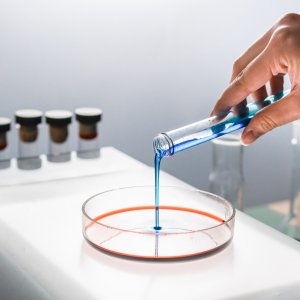Have you ever been to Formentera? If you have, you will know that it is famous mainly due to its incomparable crystal-clear waters. It is magical.
What if we told you that these beaches are like this thanks to a plant? Yes, you read that right! Today we are going to explain why we should take good care of Posidonia, the species that gives life to the Mediterranean Sea.
The longest-living species in the biosphere
A species endemic to the Balearic Islands, Posidonia -Posidonia oceanica- has a stem, root, leaves, fruit and flowers.
So, with these characteristics, and even if it lives underwater, we should know that the Posidonia is a plant and not an algae. Curious, right? Besides, it is the longest-living species in the biosphere (more than 100,000 years old!!).
It also happens to be the species that plays a key role in maintaining the marine ecosystem it inhabits. This is why:
- It grows on rocks and sandy beds -yes, it's an all-rounder- and fixes the soil by retaining material and dissipating the force of waves.
- It grows in any way you can imagine: vertically or horizontally, and this helps it to serve as a refuge for fish, crustaceans and molluscs, as well as being a common spawning ground for them. In other words, many other species depend on its existence.
- It captures carbon. Yes, as you read it. In fact, it is capable of sequestering more than twice as much carbon as the planet's temperate and tropical forests. Planting trees? We also recommend planting and protecting Posidonia!
- It produces oxygen: Posidonia meadows can release up to 20 litres of oxygen per day per square metre.
The benefits of this magical plant do not end in the sea, but also reach the land. Posidonia releases its leaves, which end up on the beaches and fix the sand on them, preventing erosion.
An ecological problem that needs to be tackled as soon as possible
Although the benefits of protecting this species are as clear as Formentera's waters, it turns out that it is one of the most important ecological problems facing the Mediterranean Sea. Posidonia meadows have been significantly reduced in recent years, largely due to trawling, polluting discharges, coastal works, rising temperatures and, above all, anchoring in their meadows.
A solution within everyone's reach
The protection of this plant is in everyone's hands, and that is why it is essential that we act. There is currently an application that helps you to identify where to anchor properly and, if you see a boat that does so irregularly, you can report it.
In addition, there are very interesting projects such as REE or the IbizaPreservation Foundation, which seek to raise awareness and restore this plant in the Balearic ecosystem. So we are very happy to see that, although there is still a long way to go, there is a lot of hope for this particular species!













